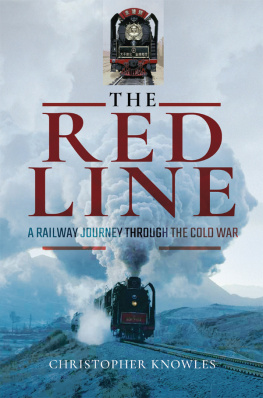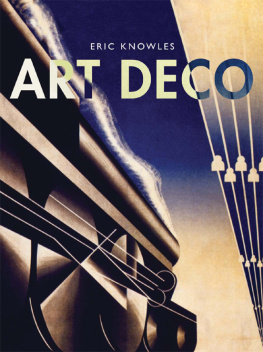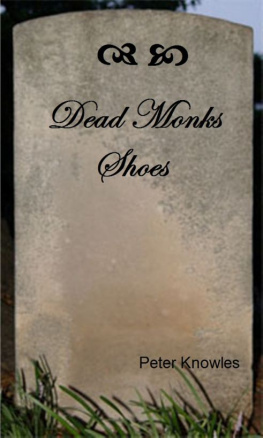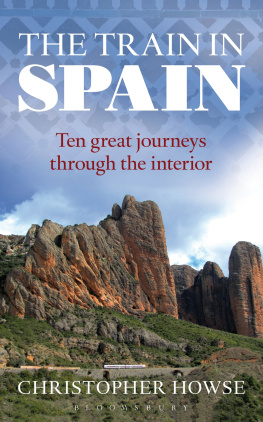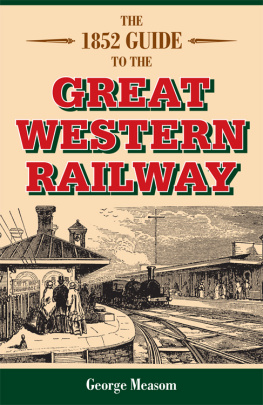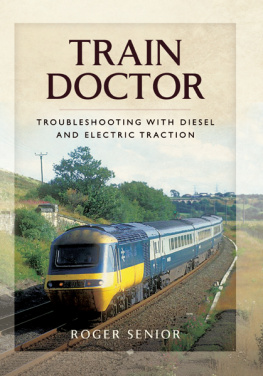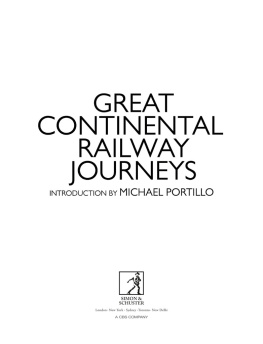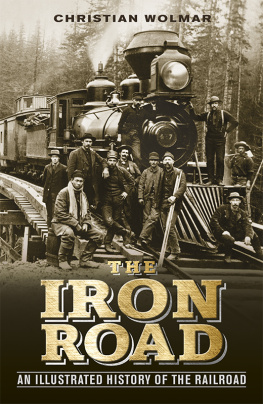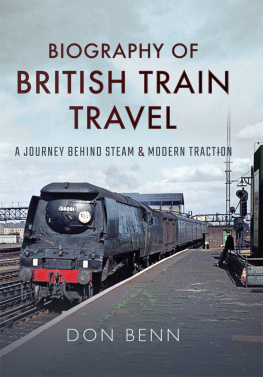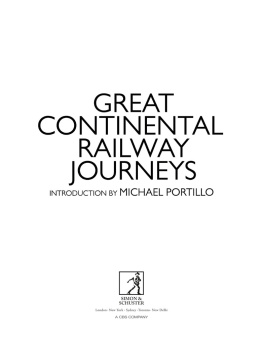
The Red Line
The way to heaven out of all places is of length and distance.
Thomas More, Utopia
To Ann & Daniel
The Red Line
A Railway Journey Through the Cold War
Christopher Knowles
First published in Great Britain in 2017 by
Pen & Sword Transport
an imprint of
Pen & Sword Books Ltd
47 Church Street
Barnsley
South Yorkshire
S70 2AS
Copyright Christopher Knowles 2017
ISBN 978 1 47388 744 2
eISBN 978 1 47388 746 6
Mobi ISBN 978 1 47388 745 9
The right of Christopher Knowles to be identified as the Author of this Work has been asserted by him in accordance with the Copyright, Designs and Patents Act 1988.
A CIP catalogue record for this book is available from the British Library
All rights reserved. No part of this book may be reproduced or transmitted in any form or by any means, electronic or mechanical including photocopying, recording or by any information storage and retrieval system, without permission from the Publisher in writing.
Pen & Sword Books Ltd incorporates the imprints of Pen & Sword Archaeology, Atlas, Aviation, Battleground, Discovery, Family History, History, Maritime, Military, Naval, Politics, Railways, Select, Transport, True Crime, Fiction, Frontline Books, Leo Cooper, Praetorian Press, Seaforth Publishing and Wharncliffe.
For a complete list of Pen & Sword titles please contact
PEN & SWORD BOOKS LIMITED
47 Church Street, Barnsley, South Yorkshire, S70 2AS, England
E-mail:
Website: www.pen-and-sword.co.uk
Preface
In April 1981 I set out from London on a train journey that, many weeks later, would bring me to Hong Kong. With me were a half dozen paying customers, whose welfare was notionally my responsibility. Our route would take us through East Germany, Poland, the Soviet Union, the Mongolian Peoples Republic and the Peoples Republic of China a substantial part of what was then the Communist world. From our vantage point today it may seem surprising that these countries were regarded with at best suspicion and at worst with visceral terror. That was the nature of the Cold War.
Over the following years, I was to make that journey some twenty-four times. Although this was how I earned my living, this route was one I chose to repeat time and again for two reasons. First, I became fascinated by what most people would have regarded as the eccentric dystopias east of the Berlin Wall; totalitarian, sometimes despotic regimes founded on oppression and violence, where Western ideas of freedom were largely absent, where daily life was exhausting and frustrating and yet where a kind of old-fashioned gentility was preserved. Second, the journey itself was perhaps the greatest adventure possible in conditions of safety and security. We travelled on a series of ordinary trains, mixing with people whose lives were alien to our own, on almost the worlds longest possible continuous railway route.
Travellers were, quite naturally, apprehensive at entering our enemies lairs. That first journey I, too, was apprehensive (because I had no clue what I was doing) but soon discovered that as foreigners, and particularly as tourists, there was nothing to fear. If you were in an organised group, you were somehow immune to suspicion; a pretty good cover for a spy, I would have thought.
We did not know it at the time, but all of those countries were on the brink of great changes, with China leading the way, and Poland close behind. Now, compared to that time, in many aspects they are unrecognisable, even if China remains nominally a Communist state and Russias interpretation of democracy is ambiguous in the extreme. But in 1981, those changes were some way off. Hundreds of millions of citizens across Europe and beyond the Urals, through Asia to the southern tip of China continued to live under highly bureaucratised and frequently oppressive governments and many of them had just emerged from decades of terror and abuse.
That is why the story of these journeys is worth telling. What follows, combined into a single imaginary journey, is a selection of the events that occurred over the years, featuring many of those sometimes demanding but always spirited people who travelled with me at different times. All of the events are true and with the exception of the incarceration in Ulan Bator, which was the unfortunate fate of another, most happened to me; but I have taken the liberty of occasionally taking them out of their original context in order to preserve the narrative flow. They express my wonderment at everything we saw, from the awe-inspiring to the downright depressing.
Acknowledgements
My thanks to Christian Wolmar for his enthusiastic help in ensuring that this book was published; to commissioning editor John Scott-Morgan; to editor Carol Trow for her light touch and subtle suggestions; to Voyages Jules Verne, the travel company that made these journeys possible; to all the passengers who made life so interesting; to the local people we met along the way, who often had to work in difficult circumstances; and to my fellow guides, for the good times we shared.
Above all I thank my family and friends, near and far, for their love.
Hook of Holland, Netherlands to Ulan Bator , Drive 8,759 km, 110 h Ulaanbaatar, Mongolia
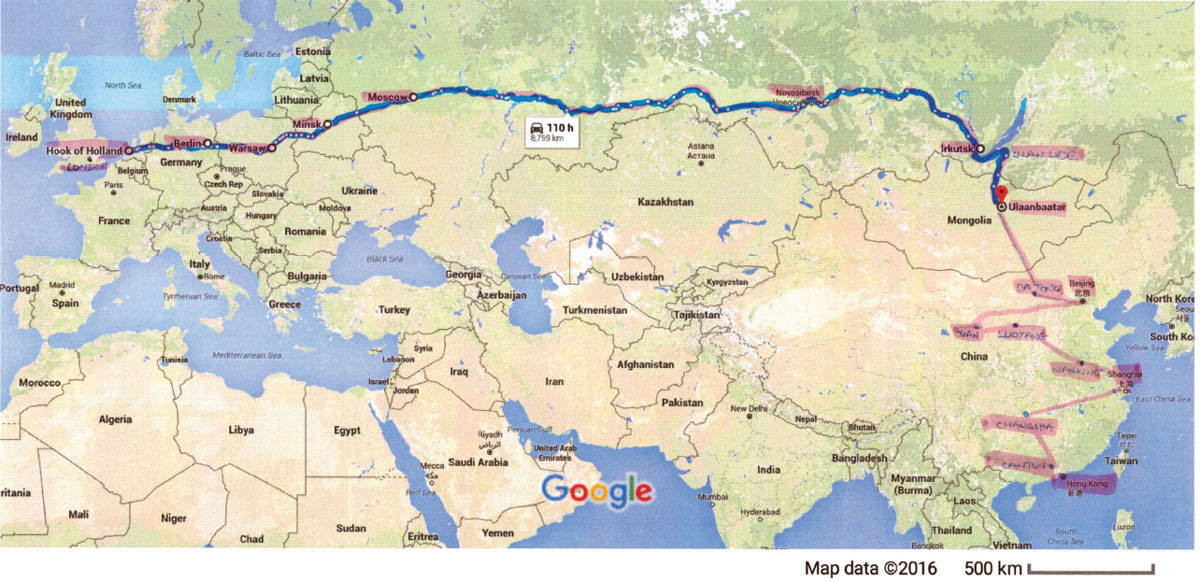
Chapter 1
First Steps
It all started in 1981. I was living in London then and had found myself at a loss. I was young but not so young that the expectations on the back of an expensive education did not weigh heavily on my shoulders. Seduced by the charms of the 1960s, I had lived a bit of a rackety life in early adulthood, a series of jejune enterprises and deadend jobs in various European backwaters had left me with the knowledge of several languages, experience of some aspects of the world and not much else.
A friend of mine from school, like many others I knew, had moved effortlessly through the rest of his education to land a lucrative job with a bank in the Far East, in Hong Kong. With little in common beyond our shared school experiences and despite the altogether different trajectories of our lives since, we had nonetheless remained in touch. When, on one of this friends occasional visits home, we met for a drink in the City, he suggested that if I had nothing better to do with my time then I might consider looking at China, which was just then, after decades of conflict and self-administered impoverishment, beginning its first cautious consorting with the west. The friend, convinced that China would now inevitably become integrated into the wider world and knowing of a company searching for enthusiastic and sensible recruits to represent them there, had noted their contact details and duly passed them on to me.
My first reaction was irritation, because it seemed like a lofty piece of advice from one who was already doing well in life to one who was feckless. That was just my state of mind at the time. But as I thought a little more about it, the more the idea enchanted me. China! In my mind there lodged an image that must have been in a book we used at kindergarten school. There was an impossibly wide river, the Yangtse Kiang as were taught to call it, dotted with junks, with those characteristic sails that reminded me of bat wings (a bat, I learned later, is a symbol of happiness in China), made of bamboo matting and bamboo battens. It is remarkable, the power of an image, how it can colour our judgement for ever. And then there was all that recent history the Cultural Revolution, the Gang of Four that had in some almost indiscernible way impressed itself upon me whilst simultaneously seeming so distant and so exotic as to be unknowable and out of my reach. I dont think that it would ever have occurred to me to think of going to China, then, a place that seemed threatening and remote, had it not been for that letter. Yet, when what was a kind of invitation arrived, it seemed irresistible.
Next page
